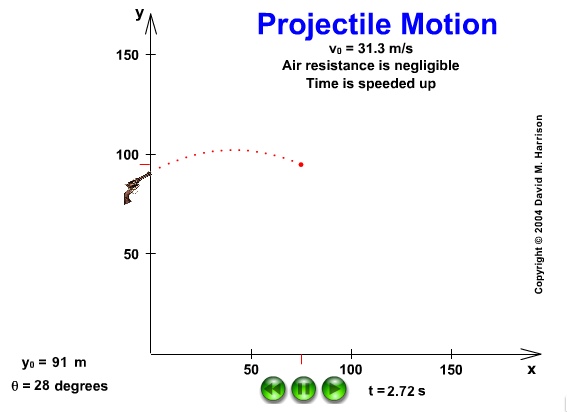David Harrison at The University of Toronto’s School of Physics has a wonderful collection of physics animations. Many of them are interactive, and some allow the viewer to make predictions before the animation plays.
Now, I have to be honest. I made it through physics because the top three students in my graduating class (wonderfully kind ladies) befriended me my senior year of high school. I remember little about the class except my teacher insisting that “1 and 1 makes three.” Needless to say, physics is not my strong suit, but I enjoyed playing with these animations. I found myself testing what would happen with this change or that one.
Let me know if you can use these in your classroom. I’m trying to dig up more science and math resources, but these subjects are not my ex-per-tise.


Thanks for the link.
Physics teachers, like myself, consider this site to be the best place for physics simulations:
http://phet.colorado.edu/new/index.php
The site was launched by Nobel laureate Carl Wieman. Wieman launched PhET in 2002 with $250,000 of the money he received for winning the 2001 Nobel Prize in physics.
I have to agree with Dale, the PhET simulations are outstanding.
As for other math and science sites, here are some I’ve discovered recently and I’m still learning about:
MathTrax – This is an equation plotter. The cool thing is it returns a text description of the function in words based on your function. This was originally created for vision impaired kids, the text description can be read to the kids. http://prime.jsc.nasa.gov/mathtrax/
Genetics web labs, including the classics like Mendel’s peas and punnett squares as well as newer ones like Dragon inheritance. http://www2.edc.org/weblabs/WebLabDirectory1.html
Molecular Workbench – 3D models of molecules and molecular interactions. There are lots of models and lessons to accompany them already, but Molecular Workbench includes an environment for creating your own models as well. http://workbench.concord.org/
Molecular Workbench was made by the Concord Consortium. I learned about this group at the NECC. I haven’t spent anywhere near enough time digging through their website yet. http://www.concord.org/
Are there any particular areas of science you’re looking for resources to cover?